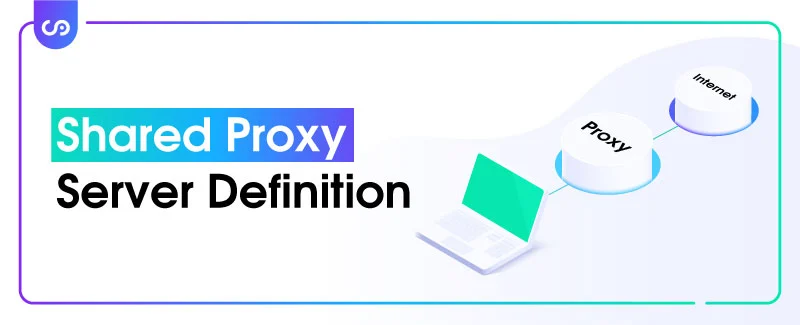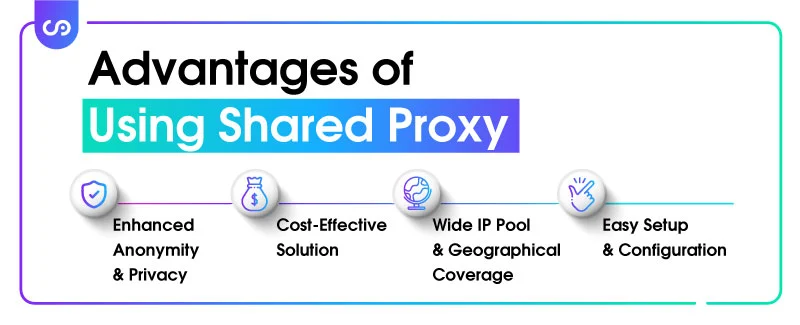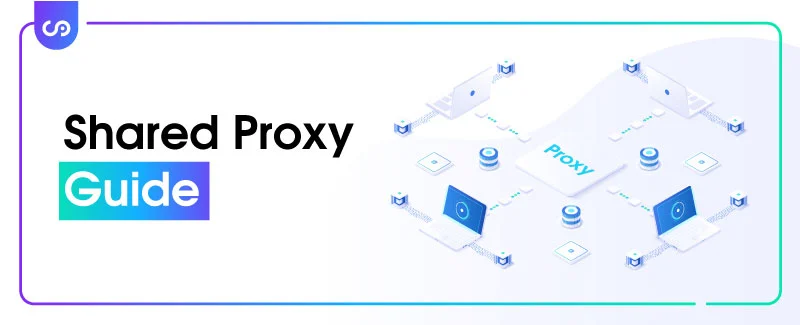In today’s interconnected digital landscape, online privacy and security have become paramount concerns. As internet users, we often leave a trail of digital footprints behind us, making it crucial to safeguard our identities and activities. This is where shared proxy servers come into play. So, what is a shared proxy server? A shared proxy is a networking tool that allows multiple users to share a single proxy IP address, effectively masking their online identities and providing an extra layer of protection. In this article, we will delve into the intricacies of shared proxy servers, exploring their functionality, advantages, and how they can enhance your online experience. Join us as we unravel the world of shared proxy servers and discover the benefits they offer in today’s ever-evolving digital landscape.
Shared Proxy Server Definition
To truly understand shared proxy servers, we must first grasp the concept of a proxy and the various types of proxy servers available. So, what is a proxy? In simple terms, a proxy acts as an intermediary between your device and the websites or servers you connect to on the internet. It serves as a shield, allowing you to browse the web anonymously and securely.
Proxy server types abound, but in this article, we will focus on shared proxy servers. Shared proxies, as the name suggests, are utilized by multiple users simultaneously. Unlike dedicated proxies, which are assigned to a single user, shared proxies offer a cost-effective solution by pooling resources among multiple individuals. By sharing the same proxy IP address, users can enjoy the benefits of anonymity and privacy without breaking the bank.

Shared proxy servers operate by receiving your internet requests and forwarding them to the intended destination. When you access a website through a shared proxy, your real IP address remains hidden, making it challenging for websites and online platforms to trace your activities back to you. Instead, they see the IP address of the shared proxy server, adding an extra layer of protection to your online presence.
Not only do shared proxy servers offer enhanced privacy, but they also boast several other benefits. These include a wide IP pool and geographical coverage, allowing users to access region-restricted content with ease. Furthermore, shared proxies are relatively easy to set up and configure, making them accessible to users of all technical skill levels.
In the following sections, we will delve deeper into the advantages of using shared proxy servers and guide you on choosing a reliable provider, setting up and configuring your shared proxy, and best practices for maximizing its effectiveness. So, let’s explore the world of shared proxy servers and uncover the wealth of possibilities they bring to your online browsing experience.
Advantages of Using Shared Proxy
Using shared proxy servers brings forth a multitude of advantages that can revolutionize your online experience. Let’s dive into some of the key benefits that make shared proxies a compelling choice for individuals and businesses alike.
- Enhanced Anonymity and Privacy: Privacy is a fundamental concern in the digital age. Shared proxy servers act as a protective shield, concealing your true identity by masking your IP address. By routing your internet traffic through a shared proxy, you can browse websites and engage in online activities without leaving a trace. This heightened anonymity ensures that your personal information, browsing habits, and sensitive data remain safeguarded from prying eyes.
- Cost-Effective Solution: Budget-conscious users will appreciate the cost-effectiveness of shared proxy servers. By sharing the same proxy IP address with multiple users, the expenses are distributed among the participants, making it an affordable option for individuals and businesses looking to enhance their online security. Shared proxies provide a compelling balance between cost and functionality, offering significant savings compared to dedicated proxy alternatives.

- Wide IP Pool and Geographical Coverage: Shared proxies provide access to a diverse IP pool, encompassing a range of geographic locations. This feature allows you to overcome regional restrictions and access geo-blocked content effortlessly. Whether you’re trying to bypass content limitations or conduct market research from different locations, shared proxies offer the versatility you need to navigate the global online landscape seamlessly.
- Easy Setup and Configuration: Embracing shared proxy servers doesn’t require extensive technical expertise. Most reputable shared proxy providers offer user-friendly interfaces and comprehensive setup guides, making it easy for both novices and seasoned users to configure their proxies quickly. With a few simple steps, you can establish a secure connection through a shared proxy and enjoy its benefits without unnecessary complications.
In summary, the advantages of using shared proxy servers encompass enhanced anonymity, cost-effectiveness, wide IP pools, and easy setup. These advantages empower users to protect their privacy, access restricted content, and navigate the internet with peace of mind. As we continue, we will provide a comprehensive guide on choosing a reliable shared proxy provider, setting up and configuring your shared proxy, and best practices for optimizing your proxy experience. So, let’s embark on this journey and unlock the full potential of shared proxy servers.
Shared Proxy Guide
In this comprehensive shared proxy guide, we will walk you through the essential steps and considerations for making the most of your shared proxy experience. Whether you’re a beginner or a seasoned user, this guide will equip you with the knowledge and tools necessary to navigate the world of shared proxy servers effectively.
- Choosing a Reliable Shared Proxy Provider: The first step in harnessing the power of shared proxies is selecting a reputable provider. Look for providers that offer high-speed connections, robust security measures, and a wide range of proxy locations. Reading reviews and comparing features will help you make an informed decision. Remember, reliability and trustworthiness are key when entrusting your online privacy to a shared proxy provider.
- Setting Up and Configuring Shared Proxy: Once you’ve chosen a provider, it’s time to set up and configure your shared proxy. Most providers offer detailed instructions or user-friendly interfaces to simplify the process. Typically, you’ll need to specify the proxy settings in your web browser or configure them at the system level. Take advantage of any additional features provided by your chosen provider, such as browser extensions or mobile apps, to ensure seamless integration across your devices.

- Best Practices for Using Shared Proxy: To maximize the benefits of shared proxy servers, it’s essential to follow some best practices. Firstly, ensure that you regularly rotate your proxy IP addresses to maintain optimal anonymity and prevent potential tracking. Additionally, be mindful of the websites and services you access through your shared proxy to avoid violating their terms of service. Finally, stay informed about any updates or changes from your proxy provider, as they may enhance security protocols or introduce new features to improve your experience.
By adhering to these guidelines and leveraging the capabilities of shared proxies, you can unlock a world of possibilities. Whether you’re engaging in market research, web scraping, social media management, or simply browsing the web anonymously, shared proxies offer the tools you need to accomplish your goals effectively.
In conclusion, this shared proxy guide has highlighted the crucial steps involved in utilizing shared proxy servers. From choosing a reliable provider to setting up and configuring your proxy, and practicing best usage habits, you now have the knowledge to navigate the shared proxy landscape confidently. By implementing these strategies, you can harness the power of shared proxies and unlock a wealth of advantages, including enhanced privacy, access to geo-restricted content, and seamless online experiences. Now, it’s time to embark on your shared proxy journey and take control of your online presence.
Conclusion
Shared proxy servers offer a valuable solution for individuals and businesses seeking enhanced online privacy and security. By acting as intermediaries between users and the internet, shared proxies effectively mask users’ true IP addresses, providing anonymity and safeguarding sensitive information. As we’ve explored throughout this article, shared proxy servers, with their cost-effectiveness and wide IP pools, allow for seamless access to geo-restricted content and protect against online tracking. In essence, a shared proxy server can be defined as a networking tool that enables multiple users to share a single proxy IP address, bolstering their online defenses and ensuring a more secure browsing experience. By embracing shared proxies, individuals and organizations can navigate the digital landscape with confidence, knowing that their online activities remain private and shielded from prying eyes.
FAQs
What is a shared proxy?
A shared proxy is a type of proxy server that is used by multiple users simultaneously. It allows multiple users to share the same IP address when accessing the internet.
How does a shared proxy server work?
In a shared proxy server setup, multiple users connect to the same proxy server and route their internet traffic through it. The server then forwards the requests to the target websites, acting as an intermediary between the users and the websites.
What are the advantages of using shared proxies?
Some advantages of using shared proxies include cost-effectiveness, access to a wide range of IP addresses, increased anonymity and privacy, and the ability to bypass certain restrictions imposed by websites.
Can I trust the anonymity of a shared proxy?
While shared proxies offer some level of anonymity, it is important to note that since multiple users are sharing the same IP address, it can be more easily associated with proxy usage. For stronger anonymity, dedicated or residential proxies may be preferred.







